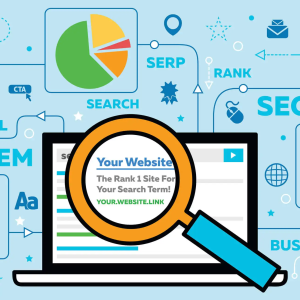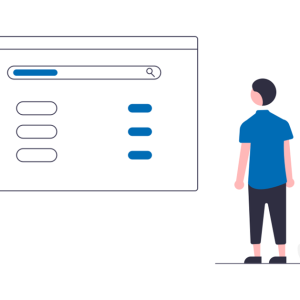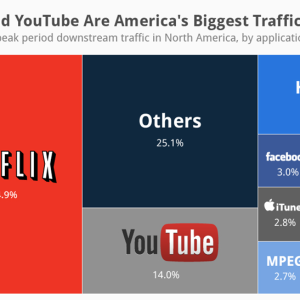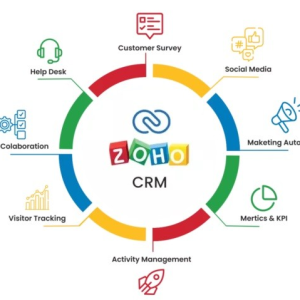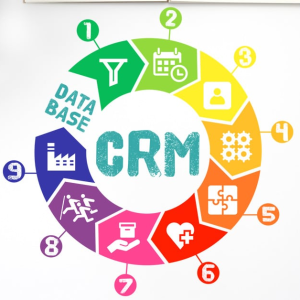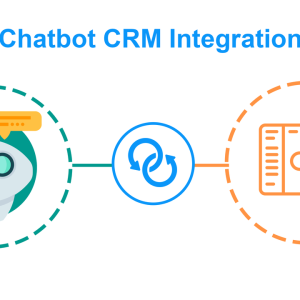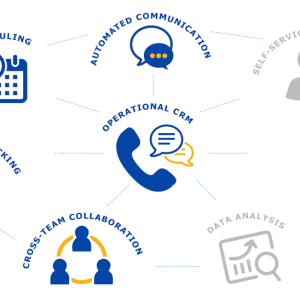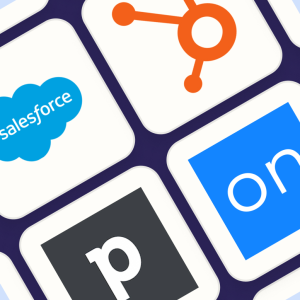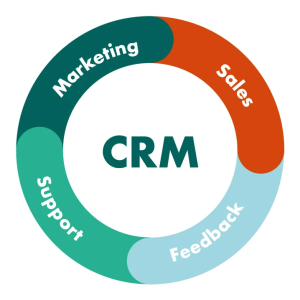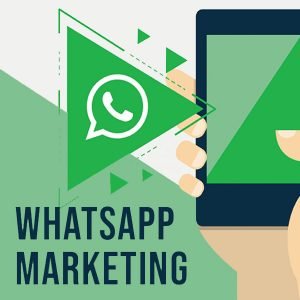Introduction
PPC or Pay-Per-Click is a form of online advertising where businesses can display ads on search engines and pay the hosting platform whenever their ad is clicked. It’s a popular way to generate leads and sales online, but as with anything, some myths surround PPC.
As we move into 2022, it’s important to stay up-to-date on the latest changes and trends in the PPC landscape. Here are 22 examples of PPC myth and their facts that you should know:
PPC Myth #1: PPC is too expensive
$2 for every $1 spent is how much businesses make on PPC
(Webfx)
Fact: The cost of PPC depends on several factors, such as the competitiveness of your industry, your ad budget, and your target keywords. However, PPC can be an effective way to generate leads and sales, even for small businesses with a limited budget.
If you’re worried about the cost of PPC, start by setting a budget that you’re comfortable with and monitoring your results. You can then adjust your budget accordingly.
PPC Myth #2: PPC is too complicated for small businesses
65% of small to mid-sized businesses have a PPC campaign
(Webfx)
Fact: While PPC can be complex, it’s not necessarily complicated. There are several PPC platforms and tools available that make managing campaigns easier, even for small businesses. Additionally, many agencies and consultants specialize in PPC management and can help small businesses get started.
This only becomes complicated when small businesses try to do too much on their own, without understanding the basics of investing in help.
PPC Myth #3: PPC is not effective for generating leads
Fact: PPC can be an effective lead generation tool, especially if you target the right keywords and use effective ad copy. To make the most out of PPC in generating leads, there are some things you “shouldn’t” do:
1. Don’t try to sell in your ad copy
2. Don’t use generic keywords
3. Don’t send users to your home page
Instead, focus on creating ads that are relevant to your target keywords and offer something of value to the user. Then, send them to a landing page where they can submit their contact information in exchange for that value.
PPC Myth #4: Ranking #1 will guarantee more clicks
Fact: Just because you’re ranking number one for a particular keyword doesn’t mean you’ll get more clicks. Your click-through rate (CTR) will depend on several factors, such as your ad copy, your target keywords, and the competition for those keywords.
To improve your CTR, focus on writing effective ad copy that is relevant to your target keywords and speaks to the needs of your target audience. You can also use negative keywords to help ensure that your ad is only shown to users who are likely to be interested in what you’re selling.
PPC Myth #5: Copywriting doesn’t matter in PPC
Fact: Ad copy is important for any form of online advertising, including PPC. Your ad copy should be clear, concise, and persuasive to convince potential customers to click on your ad. There are a few ways you can make your content persuasive:
- Use strong calls-to-action
- Offer something of value
- Highlight your unique selling proposition
By doing these things, you can improve your CTR and ultimately generate more leads and sales.
PPC Myth #6: Anyone can do PPC

Fact: While PPC may seem relatively simple, it’s important to remember that it’s still a form of online marketing. As such, it requires strategic planning and execution to be effective.
If anyone could do PPC, anyone would, without having to spend a penny. While PPC seems straightforward, one cannot be gravely mistaken about the negative effects it has when not done correctly. The best way to avoid this is by working with an agency or consultant who specializes in PPC management.
PPC Myth #7: You don’t need PPC if you have high organic rankings
Fact: While organic rankings are important, they’re not the only factor that determines your success online. PPC can complement your organic SEO efforts and help you reach your target market even if you don’t have high organic rankings.
For example, you can use PPC to target key phrases that you’re not currently ranking for organically. Additionally, you can use PPC to drive traffic to specific pages on your website, such as product pages or landing pages. This is an all-rounder solution because no company can ever think they have enough, customers are our gods and their presence is only valuable. More the merrier.
PPC Myth #8: Google AdWords is the only way to succeed in paid search

Fact: This may have been true a decade ago, but today there are many other options available to advertisers. Google AdWords is still the largest and most well-known PPC platform, but Bing Ads, Yahoo Gemini, and even Facebook Ads can be effective for reaching potential customers.
If you are only focusing on Google AdWords, you are missing out on a large portion of the market. To be successful in paid search, you need to be willing to experiment with different platforms and strategies.
PPC Myth #9: Broad match keywords are always a bad idea

Fact: Broad match keywords can be a great way to reach a wider audience, especially if you’re just starting with PPC. However, they can also result in a lot of wasted spending if not used carefully. It’s important to monitor your broad match campaigns closely and add negative keywords as needed to avoid irrelevant clicks.
Think of it this way: If you aim to get in front of as many people as possible who are searching for terms related to your business, then broad match keywords are a good option. However, if you’re trying to reach a very specific audience, then more targeted keyword match types may be a better choice.
PPC Myth #10: Negative keywords are a negative influence

Fact: Negative keywords are a very important tool for PPC success. They help you avoid wasting money on irrelevant clicks by ensuring that your ads only show up for searches that are relevant to your business.
This example will make you realize the importance of negative keywords. Let’s say you sell women’s clothing. You would want to add negative keywords to your campaign so that your ad doesn’t show up for searches like “men’s clothing” or “children’s clothing.” By adding negative keywords, you can save money and ensure that your ads are only shown to potential customers who are interested in what you’re selling.
PPC Myth #11: Bidding high will always get you the most clicks

Fact: The amount you bid for a particular keyword will influence your ad’s position, but it’s not the only factor. Your ad quality, relevance, and click-through rate (CTR) will also play a role in determining your position. As such, bidding high isn’t always necessary (or even advisable) to get the most clicks.
There was a time when everyone bid against each other like it was an auction, but with Quality Score in place, that is not the case anymore. Now, it is more important to have a high-quality score, which is based on factors like click-through rate (CTR), relevance, and landing page experience. So, while you still need to bid enough to compete for the top spot, you don’t necessarily need to bid the highest amount to get the most clicks.
PPC Myth #12: Quality Score is a secret algorithm
Fact: Quality Score is a measure of how relevant and useful Google believes your ad and landing page are to the search query. A high “quality score” means that your ad is more likely to be shown to potential customers, and can also result in lower costs-per-click (CPCs).
It is not a secret algorithm or a secret base in Nevada, it is simply a number that is used to determine your ad rank. The higher your Quality Score, the better your chances are of having your ad shown more often (and at a lower CPC).
PPC Myth #13: A/B testing is only for big companies
Fact: A/B testing can be a valuable tool for any size business, including small businesses. It allows you to test different versions of your ad to determine which performs better with your target audience.
A/B testing is a great way to improve your PPC campaigns, regardless of the size of your business. It allows you to test different versions of your ad (such as different headlines, descriptions, or call-to-action buttons) to determine which performs better with your target audience.
PPC Myth #14: Only long-tail keywords are worth targeting

Fact: While long-tail keywords are often less competitive and can be easier to rank for, they’re not the only keywords worth targeting. Short-tail keywords can also be effective, especially if you use them in combination with long-tail keywords. When ranked, short-tail keywords generate an incredible revenue.
If you are focusing on a specific niche, then long-tail keywords are going to be essential. But, if you have a more general business, then you can still get good results by targeting short-tail keywords. The important thing is to use a mix of both long-tail and short-tail keywords in your campaigns.
PPC Myth #15: ZERO is a bad Quality Score
Fact: A Quality Score of “zero” simply means that your ad has not yet been shown enough times for Google to determine its quality. This doesn’t mean that your ad is bad, it just hasn’t been shown enough times for Google to judge its quality.
Look at it this way, there was once a time when you had never heard of Quality Score. It did not exist. So, when it was first introduced, your Quality Score was likely a zero. As your ads were shown more and more, Google was able to judge their quality and assign a score accordingly. So, zero is not a rank, perhaps a sign that Google is still getting to know your ads.
PPC Myth #16: KWs with high search volume are always best
Fact: The search volume for a particular keyword is just one factor to consider when choosing keywords. You should also consider the competition level and the relevance of the keyword to your business.
Just because a keyword has a high search volume doesn’t mean that it’s the best keyword for your business. You need to consider the competition level and the relevance of the keyword to your business. If the keyword is highly relevant and has low competition, then it may be worth targeting. However, if the keyword is not relevant or has high competition, then it may not be worth your time and effort.
PPC Myth #17: Wider ad groups are always better
Fact: A wider ad group can be helpful if you have a large number of keywords that you want to target. However, if your ad group is too large, it can be difficult to create relevant ads for all of the keywords in the group. In general, it’s best to keep your ad groups small and relevant.
For example, you might have 100 keywords in an ad group. It would be difficult to create relevant ads for all 100 keywords. So, you might want to consider breaking the ad group into smaller, more manageable groups. This way, you can create more relevant and targeted ads.
PPC Myth #18: Night is the best time to run PPC ads

Fact: The time of day that you run your PPC ads can influence your results, but there is no “best” time to run them. It’s important to test different times and days to determine when your target audience is most likely to be online and searching for your products or services.
If you are a global business, then you need to consider the time zones of your target audience. For example, if you are targeting people in the United States, then you might want to run your ads during the day (in EST). However, if you are targeting people in Europe, then you might want to run your ads at night (in CET).
PPC Myth #19: More is always better when it comes to keywords

Fact: While it’s important to target a variety of keywords, adding too many keywords to your campaign can be counterproductive. It can be difficult to create relevant ads and landing pages for a large number of keywords, and you may end up wasting money on irrelevant clicks.
There is a proverb in English that goes like this – “Less is more”. In PPC also, this proverb holds a lot of weight. When you have too many keywords in an ad group, it becomes difficult to create relevant ads and landing pages. You might also end up wasting money on irrelevant clicks. So, it’s important to target a variety of keywords, but don’t go overboard.
PPC Myth #20: Competitor research is a waste of time
Fact: Competitor research can be a valuable part of your PPC strategy. By understanding what your competitors are doing, you can develop strategies to improve your campaign and get an edge on the competition.
We will take the example of Ben who is running a PPC campaign for his eCommerce store. He is selling shoes and he has been researching his competitors. He found out that one of his competitors is selling the same shoes at a lower price. Ben decides to match the price of his competitor. By doing this, he gets an edge over his competitor and he also saves money that he would have otherwise spent on PPC.
So, the bottom of the story remains the same – Competitor research is a valuable part of your PPC strategy and can help you develop strategies to improve your campaign.
PPC Myth #21: Jargon is a good way to sound like an expert
Fact: Using jargon in your PPC ads is generally not a good idea. Most people do not search for technical terms, and using them in your ads can make you seem out of touch with your customers. Stick to language that is clear and easy to understand.
If there is an ad that reads “Get the latest and greatest SEO software to help you rank higher in SERPs”, would you be more likely to click on it or an ad that reads “Get the latest and greatest software to help you improve your website’s ranking in search engines”?
If you are like most people, you would probably choose the latter. This is because the second ad is written in clear and easy-to-understand language. The first ad, on the other hand, is full of jargon that most people would not understand.
So, when writing your PPC ads, it’s important to use language that is clear and easy to understand. Avoid using jargon or technical terms unless you are targeting a very specific audience.
PPC Myth #22: PPC Auditing Services are not necessary
Fact: PPC auditing services can be a valuable way to improve your campaign. An experienced auditor can provide you with insights and recommendations that can help you get more out of your PPC budget.
PPC auditing services can be a valuable way to improve your campaign. An experienced auditor can provide you with insights and recommendations that can help you get more out of your PPC budget. So never say no to PPC auditing services.
Conclusion
PPC is an ever-changing landscape, and it’s important to stay up-to-date on the latest changes and trends. By understanding the myths and facts about PPC, you can develop a more effective and efficient campaign. What are some of the myths and facts about PPC that you have come across? Share your thoughts in the comments below!
We hope you enjoyed reading this article and that you found it helpful. And if you would like to learn more about PPC or how to host the best PPC campaign, be sure to check out our other articles on the subject. And, don’t forget to check out our PPC services on our website and give us a call at 12channels for free consultation. Thank you for reading!

